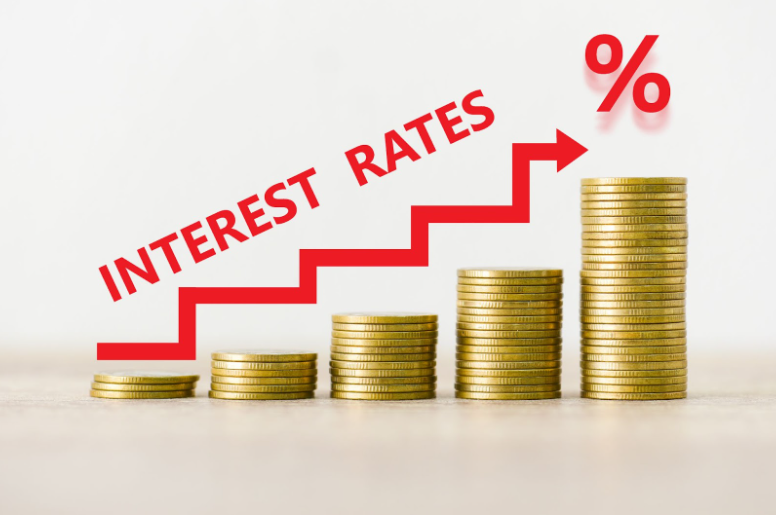
How to Handle Rising Interest Rates and Debt
As Canadians, we are currently facing a challenging financial climate. With interest rates steadily climbing, personal and national debt levels are increasing, causing concern and uncertainty for many households. Whether it’s your mortgage, car loan, or credit card, the borrowing cost is increasing. To add to the worry, wages aren’t rising simultaneously. This evolving situation has created a real need for information and guidance on managing finances effectively in the face of these changes. This blog post aims to provide you with essential knowledge and strategies to help navigate these turbulent financial waters.
Understanding Interest Rates
Interest rates are fundamental to any financial system, but they can sometimes be challenging to understand. Simply put, an interest rate is the cost you pay for borrowing money or the reward you get for saving it. When interest rates rise, borrowing money becomes more expensive.
The Bank of Canada determines interest rates. It sets the target for the rate, which is the rate at which major financial institutions borrow and lend funds among themselves. Changes in the overnight rate influence other interest rates, such as those for consumer loans and mortgages. Factors that often contribute to increased interest rates include inflation, economic growth, and international financial market trends.
As interest rates rise, existing debt becomes more expensive, making it harder for individuals and the country to pay off their debts.
The Impact of Rising Interest Rates on Personal Debt

Rising interest rates can lead to what’s known as a ‘debt domino effect.’ As interest accumulates and payments increase, it might become harder for you to keep up. As a result, you could accrue more debt to cover your increasing expenses.
Understanding the impacts of rising interest rates on your personal debt is the first step toward effectively managing your financial situation.
Strategies to Manage Debt in a High-Interest Rate Environment
Facing the reality of rising interest rates can be daunting. However, managing your debt effectively is possible with the right strategies and mindset. Here are several methods you can explore:
- Debt Consolidation: This approach combines multiple debts into a single, larger piece of debt, usually with more favorable pay-off terms like a lower interest rate, a lower monthly payment, or both. Debt consolidation can simplify your financial obligations and help lower the overall interest you pay.
- Refinancing Loans and Mortgages: Refinancing involves revising an existing loan’s interest rate, payment schedule, and terms. When interest rates increase, it may be beneficial to refinance to a fixed-rate loan to lock in a current lower rate.
- Budgeting and Debt Repayment Strategies: Budgeting is a tool to ensure you live within your means and can allocate funds to pay off your debt. Debt repayment strategies like the snowball method (paying off small debts first) and the avalanche method (paying off high-interest debts first) can also be beneficial.
- Exploring Consumer Proposals and Bankruptcy: In some situations, you may need to explore options like consumer proposals or bankruptcy. A consumer proposal is a formal, legally binding agreement you make to pay back a percentage of what is owed. Bankruptcy, on the other hand, involves legally declaring that you cannot pay your debts. Both have implications and should be considered only after seeking professional advice.
- Building an Emergency Fund: Establishing a solid emergency fund can provide a financial buffer for unexpected expenses or changes in income. This fund can be the difference between a minor financial setback and a debt crisis.
Role of Credit in Managing Rising Interest Rates and Debt
A good credit score can be a powerful tool in managing debt in a high-interest-rate environment. A good credit score can open doors to competitive interest rates when refinancing or consolidating your debt. Here’s how to leverage your credit:
- Maintaining a Good Credit Score: Regular, on-time payments, keeping low credit balances, and not applying for new credit frequently can contribute to a healthy credit score. This score can give you more room for negotiation with lenders.
- Improving Credit Score: If your credit score isn’t in the best shape, don’t despair. Strategies to improve your credit score can include paying off your outstanding balances, keeping old credit accounts open, keeping your credit utilization low, etc.
Preparing for Future Rate Hikes

While managing current debts and navigating present challenges is essential, preparing for future interest rate increases is equally important. Here are some strategies to build financial resilience:
- Creating a Financial Plan: An effective plan outlines your financial goals and the steps you’ll take to achieve them. It includes budgeting, emergency funds, debt repayment strategies, and investment plans.
- Setting Financial Goals: Clear, achievable goals give you direction and make sticking to your financial plan easier. These goals include paying off a certain amount of debt, saving for retirement, or buying a home.
- Building an Emergency Fund: This fund is your safety net. It’s there to cover unexpected expenses or income changes without taking on more debt.
- Diversifying Income: Having multiple income streams can reduce financial risk. Consider freelancing, part-time jobs, or investing in assets that generate income.
Conclusion
Rising interest rates and increasing debt can pose significant challenges for Canadians. However, with an understanding of how interest rates work, awareness of the impact on personal debt, and the implementation of sound strategies, you can navigate this financial landscape successfully. While it may seem daunting, remember that you’re not alone – resources and assistance are available.
If you’re overwhelmed by your financial situation, remember that EmpireOne Credit is here to help. We provide personalized assistance and guidance to help you manage your financial situation effectively. Your debt can be reduced by up to 80%, and interest will stop immediately. Call us today at (416) 900-2324 to schedule a free consultation. Being debt-free feels good!





